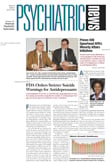The Medicare program will be broke in 2019, according to this year’s report of the Medicare and Social Security trustees. The trustees state that Medicare’s Hospital Insurance (HI) Trust Fund is projected to be exhausted in 2019, seven years earlier than had been projected in last year’s report.
Further, the new Medicare Modernization Act (MMA) accounts for two years of the seven-year difference in solvency dates, according to the report.
Other factors cited by the trustees include higher spending and lower tax revenues in 2003 than projected (accounts for two years), associated assumption adjustments (1.5 years), improved data on the health status of beneficiaries in health plans (one year), and model refinements for estimating certain hospital payments (0.5 years).
The hospital insurance component of Medicare (Part A) was intended to be self-supporting—that is, it is financed through designated sources of income (primarily earmarked payroll taxes) rather than relying on general tax revenues. The supplemental medical insurance component (Part B) is not intended to be self-supporting; beneficiaries pay a monthly premium to participate, with general tax revenues covering the remaining costs.
But diminishing tax revenues and increasing costs are draining the coffers fast. And the Medicare reform law has created a new component (Part D) to fund the prescription-drug benefit. These benefits will increase the total cost of Medicare by an estimated 25 percent when they begin in 2006 and are projected to grow more rapidly than Part B costs, according to the trustees.
Part B spending is experiencing rapid growth—more than 10 percent in each of the last four years—with costs expected to nearly double over the next 10 years and to accelerate further as the first members of the baby-boom generation enter the program in about 2010, according to the report.
The Part B account ran a deficit of $10.3 billion in 2003, because the beneficiary premiums and general revenue financing were set before Congress acted to raise Medicare physician payments significantly, thereby increasing Part B costs over the scheduled financing. In 2004 the Part B account is again expected to run a deficit ($1.7 billion) because the beneficiary premiums and general-revenue financing were set before the MMA was enacted, further increasing Part B costs.
As a result, premiums and general revenues in 2005 and later will have to be adjusted upward significantly to match the higher level of costs.
“The projections shown in this report continue to demonstrate the need for timely and effective action to address Medicare’s financial challenges—both the long-range financial imbalance facing the HI trust fund and the continuing problem of rapid growth in both HI and SMI [Supplementary Medical Insurance] expenditures,” the report said.
The Medicare trustees are Treasury Secretary and Managing Trustee John W. Snow, Secretary of Health and Human Services Tommy Thompson, Labor Secretary Elaine L. Chao, and Social Security Commissioner Jo Anne B. Barnhart. Two other members, the public trustees, are appointed by the president, with Senate confirmation. The public trustees, John Palmer and Thomas Saving, serve four-year terms and represent the general public. Dennis Smith, acting administrator of the Centers for Medicare and Medicaid Services, serves as secretary to the board.
The report, “2004 Annual Report of the Boards of Trustees of the Hospital Insurance and Supplementary Medical Insurance Trust Funds,” is posted at www.cms.hhs.gov/publications/trusteesreport. ▪
